
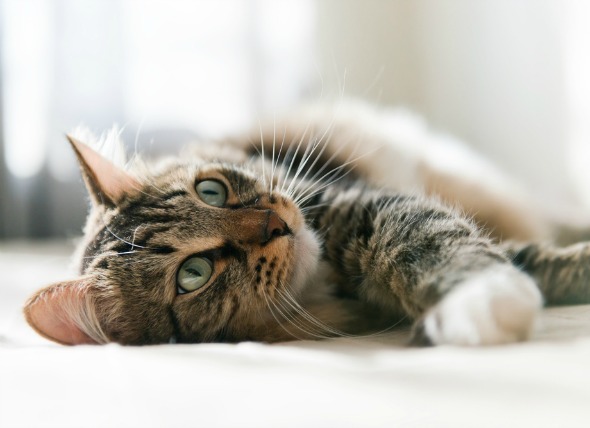
Gastrointestinal obstruction refers to blockage that may occur in the stomach or intestines. It is a fairly common condition to which cats are susceptible. Younger cats are generally at a higher risk because they tend to be less discriminating about what they ingest.
Gastrointestinal obstruction is defined as the partial or complete blockage of the flow of nutrients (solid or liquid) ingested into the body, and/or secretions from the stomach into and through the intestines. The term gastro refers to the stomach, while intestinal refers to a condition of the intestines.
Blockage may occur in the stomach or in the intestines. Gastric outflow obstruction results in the accumulation of ingested solids and fluids in the stomach. This can lead to vomiting, a subsequent loss of fluids, including gastric secretions rich in hydrochloric acid, as well as possible dehydration, sluggishness, and weight loss, depending on the severity of the condition.
Small intestinal obstruction results in the accumulation of ingested solids and fluids in the intestines by the area of obstruction. Consequent vomiting can result in significant dehydration and electrolyte imbalances, depending on the exact location of the blockage in the intestines. Damage to the protective linings of the intestine and bowel ischemia (in which blood supply to the bowels is restricted) can also potentially result in the presence of toxins in the blood.
The primary symptoms that may appear include vomiting, especially after eating, anorexia, weakness, diarrhea, and weight loss.
There are various things that can lead to gastrointestinal obstruction. Gastric outflow obstruction, in which the path of stomach contents is obstructed, can be caused by foreign bodies that have been ingested, a tumor, gastroenteritis (inflammation of the gastrointestinal tract), or pyloric stenosis, which is a condition that causes severe vomiting. Small intestinal obstruction, where the path of the small intestines is in some way obstructed, can be caused by the ingestion of foreign bodies, tumors, hernias, intussusception (a condition in which one portion of the small intestine slides into the next, causing blockage), or mesenteric torsion, which is a particular twisting of the intestines around its mesenteric axis – that is, the connective membrane between the intestines and the abdominal wall.
A number of risk factors may increase the odds of gastrointestinal obstruction, including an exposure to and tendency to ingest foreign bodies, as well as intussusception associated with intestinal parasites.
One diagnostic procedure that may be useful for confirming gastric and nearby intestinal obstruction is an endoscopy, in which a small tube with a tiny camera attached to it is led through the mouth and into the stomach, allowing for an examination. This method can also retrieve biopsies of masses, and even retrieve foreign bodies that may be the source of obstruction.
Other tests that may prove useful include urine analysis (which may rule out other causes of similar symptoms, such as liver disease), and abdominal ultrasounds, which may reveal a foreign body in your cat's stomach or intestine.
Initial diagnosis and treatment will be inpatient. Treatment most likely will consist of surgery to remove the obstructing body, as well as any necessary treatment to address secondary effects, such as administration of IV fluids to avoid dehydration. The sooner the condition is diagnosed and resolved, the better.
After initial treatment, symptoms and progress should be monitored. It is important to replenish lost fluids (due to excessive vomiting or diarrhea, for example) to avoid dehydration. Activity should be restricted, and diet should consist of bland foods for one to two days, followed by a gradual return to normal diet. Note that no foods should be given orally until the obstruction has been removed and vomiting has ended.
If your cat has a tendency to ingest foreign bodies it may become a repeat offender, so being aware of this and taking precautions will be an important part of avoiding repeat incidents of gastrointestinal obstruction. For example, do not leave garbage bins open to access for your cat.
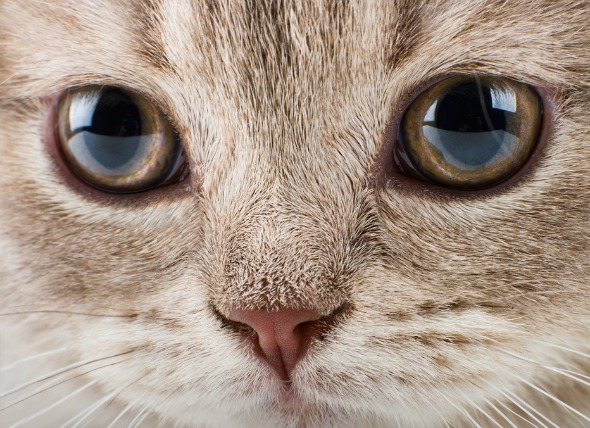 Blood in the Front of the Eye in Cats
Hyphema in Cats
Hyphema, or blood in the anterior
Blood in the Front of the Eye in Cats
Hyphema in Cats
Hyphema, or blood in the anterior
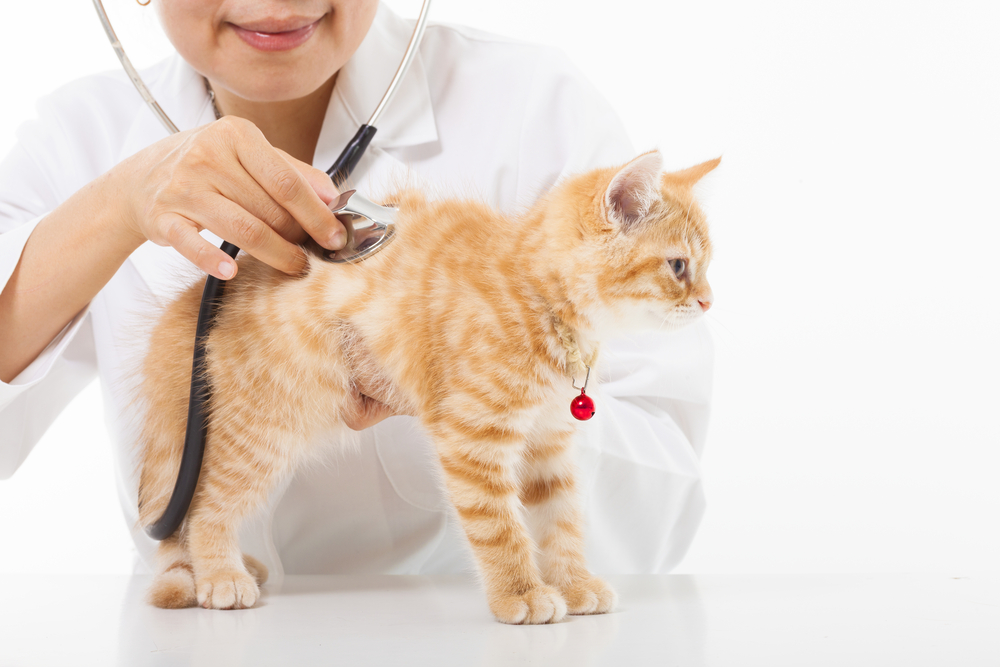 Whipworms in Cats
Trichuriasis in Cats
Cats transmit whipworms (Tri
Whipworms in Cats
Trichuriasis in Cats
Cats transmit whipworms (Tri
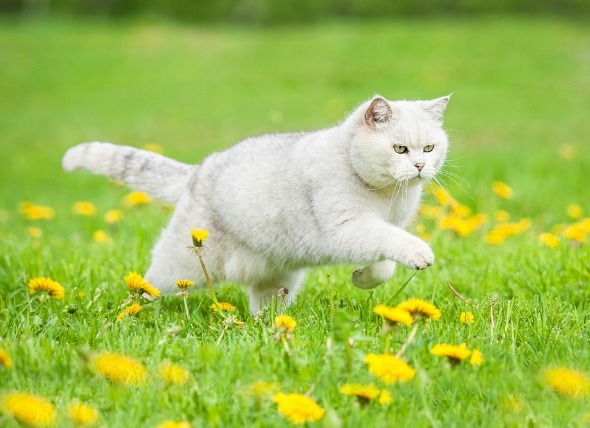 Bacterial Infection (Mycoplasma, Ureaplasma, Acoleplasma) in Cats
Mycoplasmosis in Cats
Mycoplasma, acholeplasma, a
Bacterial Infection (Mycoplasma, Ureaplasma, Acoleplasma) in Cats
Mycoplasmosis in Cats
Mycoplasma, acholeplasma, a
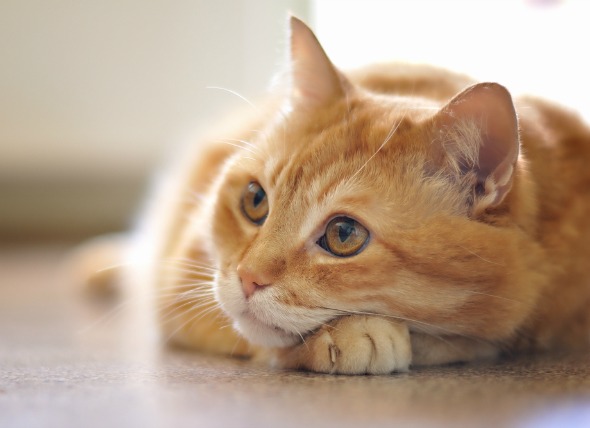 Intestinal Cancer (Adenocarcinoma) in Cats
Adenocarcinoma of the Stomach, Intestine, or Rectum in C
Intestinal Cancer (Adenocarcinoma) in Cats
Adenocarcinoma of the Stomach, Intestine, or Rectum in C
 Dangerous House Plants for Cats
Dangerous House Plants for Cats
Danger
Dangerous House Plants for Cats
Dangerous House Plants for Cats
Danger
Copyright © 2005-2016 Pet Information All Rights Reserved
Contact us: www162date@outlook.com